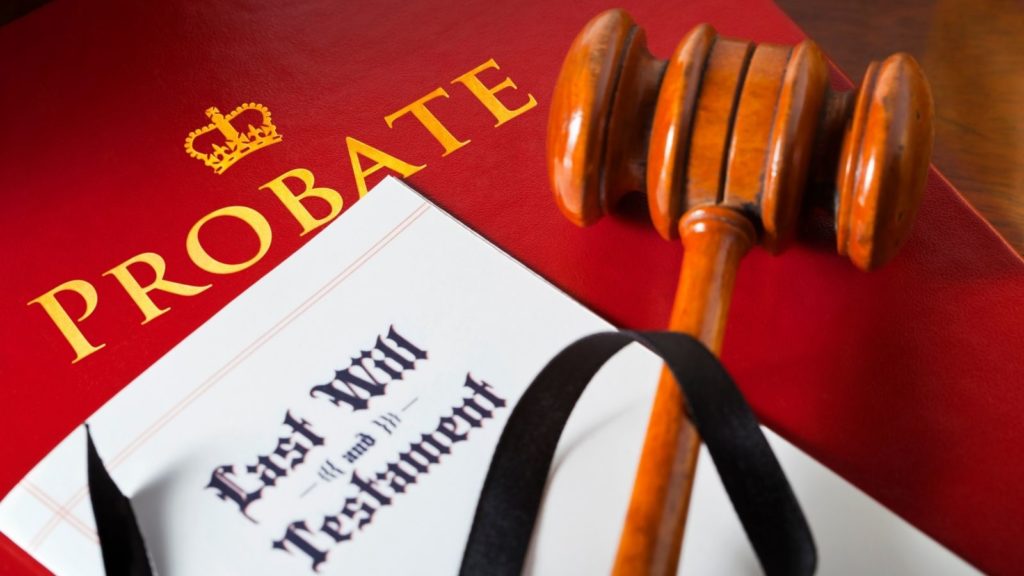Home sellers are a busy lot. They need to have their houses listed and marketed. Many sellers are preparing for showings while simultaneously researching other properties and neighborhoods that they would consider living in.
Some homes are sold after a person has passed away. Probate is often necessary before these homes can be sold. It can add more time but doesn’t really prevent the house from being placed on the market and sold at a fair price.

Selling a home in California isn’t always easy. You’ll need to know if you’re in a buyer or seller’s market. Sellers also need to confirm that any interested parties can actually afford the purchase. Even after an offer has been accepted, there could still be unexpected delays or other issues. Keeping an open mind, setting a schedule, and working toward the end goal can help you succeed. Here are a few things to know if you’re thinking about selling a house before probate has finished:
What is probate?
Probate is a legal process. The will is reviewed and an executor will be named for the estate. The executor will be responsible for properly distributing assets to any beneficiaries who were named in the will. A beneficiary can be a friend, relative, or organization.
All wills are public records after they’ve been filed with the respective local government office. Probate begins once the will, along with the petition form and death certificate have been submitted. This must be done in the county in which the deceased owned property or resided. Wills must be filed in the state of California within 30 days from the person’s death.

If the will is not filed in time or not filed at all, beneficiaries and anyone else who could be financially affected by that could file a lawsuit on their behalf. The will may also specify who the estate executor will be. It could be a friend or relative or a neutral third party outside of the family.
A reading of the will should be established. All beneficiaries should be invited to the reading. There they will learn how the deceased person’s assets will be distributed. Once all attorneys fees and other associated costs have been paid, the descendants will receive their assets as listed in the will.
The simple answer to the question of whether or not you can sell before probate is granted is that a house can only be sold before probate if probate is not necessary. The deceased person’s will may need to be examined before it can be determined whether or not they intended to sell the home. There are different methods that can be used to sell a home in probate. They are as follows:
1. Summary probate. California allows summary probate, which is an easier form of probate. It can be very beneficial when smaller estates are involved. Beneficiaries can receive or distribute assets without having to file standard probate petitions or endure hearings on the matter.
2. Jointly held real estate. If a home or other property is owned by two people, the survivor will inherit those assets in this situation. The decedent’s death certificate will still need to be filed as usual. If the survivor passes on, their will may stipulate what will happen to the house or other assets.

3. Living trust. No probate is necessary for living trusts. The person who created the trust (also known as the grantor or trustor) will choose a trustee to control the trustor’s assets. All assets in that trust will be managed according to the best interests of the designated beneficiaries. Trusts can be revocable or irrevocable.
4. Independent Administration of Estate Act. If you’re trying to sell a home under the IAEA, you must petition the court for approval or have this permission already granted in the will. Otherwise, court approval will be required before the house can be sold. All beneficiaries and other interested people must be made aware of the sale. The house can be sold for less than its appraised or fair market value if necessary. Current market trends can help determine a reasonable selling price.
5. Testamentary trust. This kind of trust is developed when a person’s will explicitly states that a trust must be formed and that ownership of the home in question will be moved over to that trust. People can only sell homes that are placed in a testamentary trust without court approval if the executor named them as the trustee. The only exception to this rule is if the will’s instructions forbid this activity.
You may want to enlist the services of a probate attorney. They can help you navigate through the paperwork and legal requirements. A good probate attorney should have experience in these matters and be able to guide parties through the process as proficiently as possible.
If you’re on the fence about hiring a probate lawyer, take some time to think about the following obstacles that can occur:
1. Debts will need to be paid before beneficiaries can receive their money or other assets. A probate or tax attorney can assist in determining what is owed and if there are more debts than assets or vice versa.
2. If the beneficiaries are busy fighting each other, it can cause the probate process to be drawn out or become much more complicated. Having a good attorney at your side can ease many of their concerns and ensure that all beneficiaries get what is rightfully theirs by law.

3. Don’t forget about other assets. The deceased person may have left behind vehicles, collectibles, bank accounts, and other items. In many cases, they will state what will happen to each of them in the event of the person’s passing. If not, an attorney’s assistance may be required.
4. Most probates in the state of California are rather painless. The process is rather swift once the will and all supplementary paperwork have been filed. Things can even be expedited if the estate meets the small estate qualifications.
After the house has been sold, money has been received and all necessary assets have been distributed, the hard work is finally over. The home will now be the new owner’s responsibility. The beneficiaries and trustees are free to go on with their lives and put the sale behind them. It’s time to look forward to the next chapters of their busy lives.
📞 Have Questions? Ask The Chris Eckert Real Estate Team
Give The Chris Eckert Real Estate Team a call today at 650.627.3799 to learn more about local areas, discuss selling a house, or tour available homes for sale.





